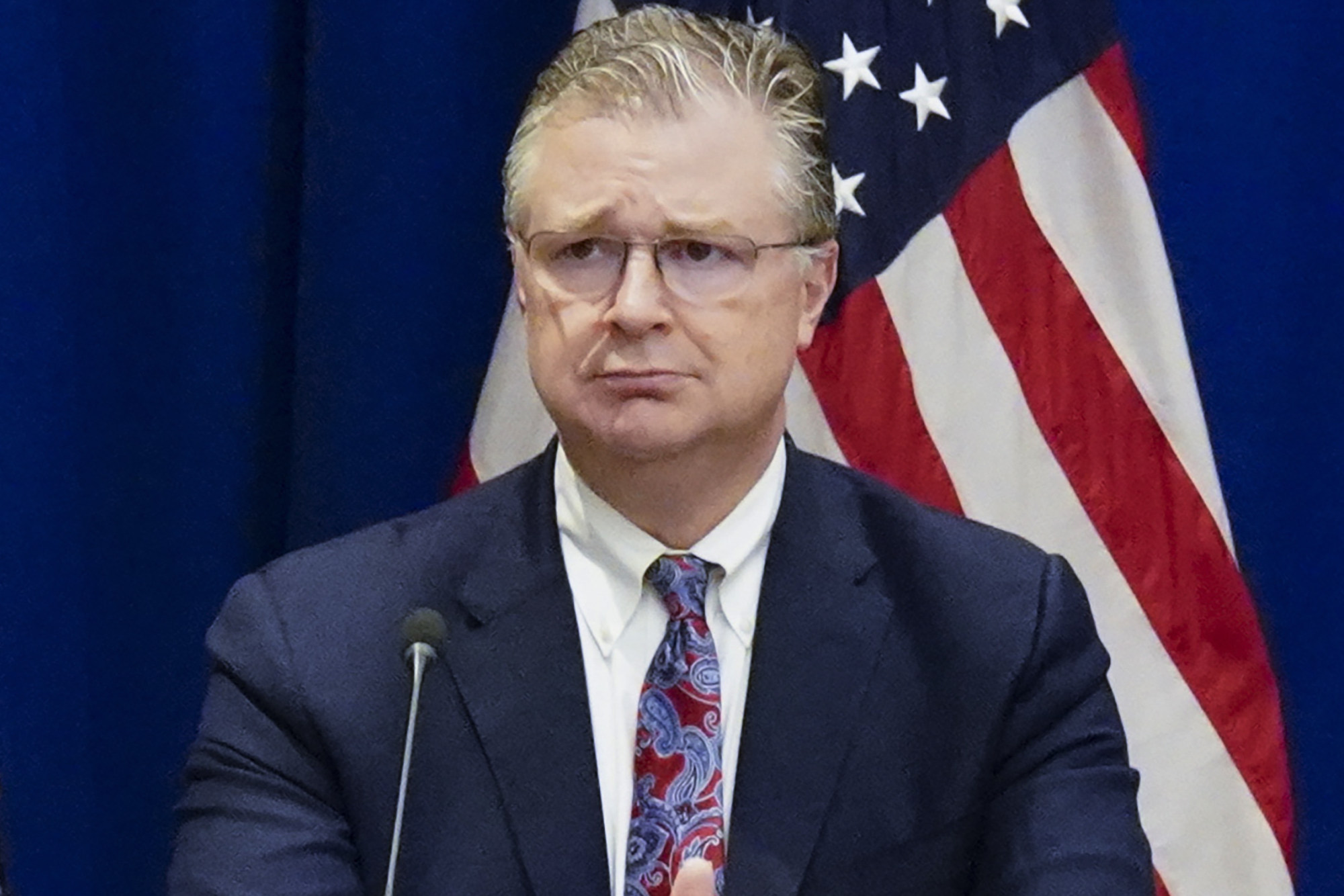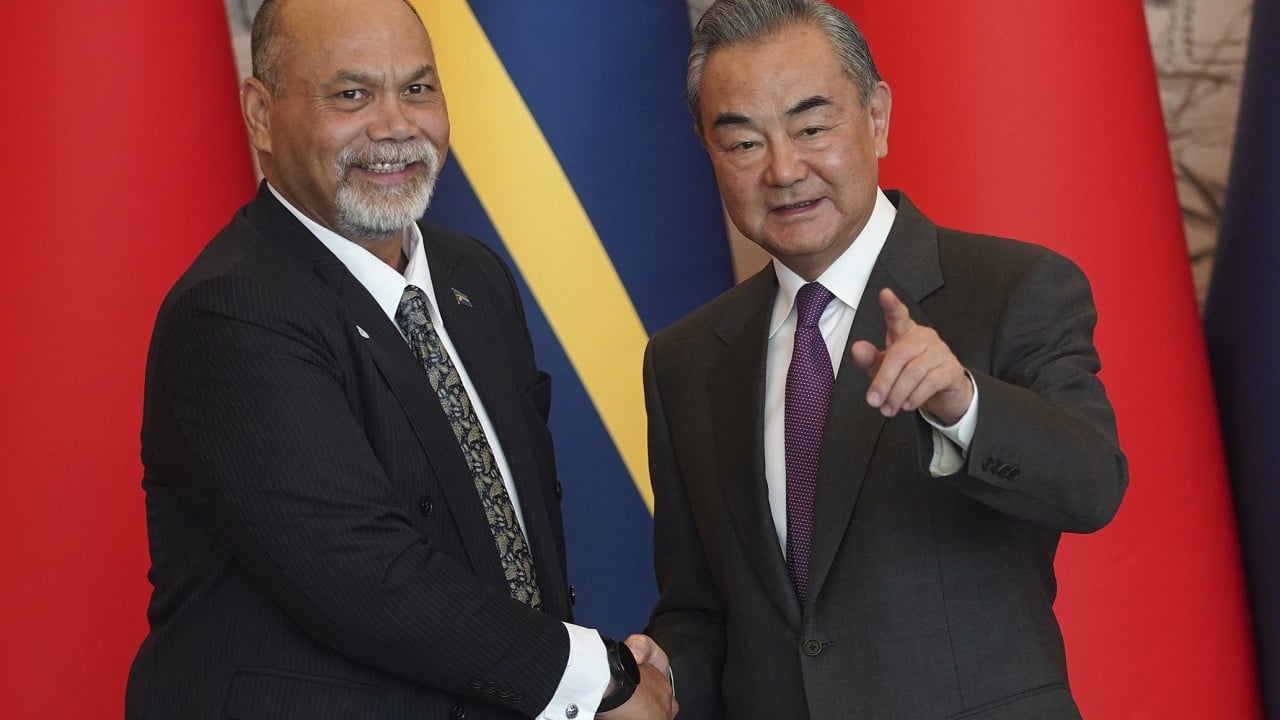A top US State Department official has acknowledged that the US was aware that the Pacific island nation of Nauru was weighing whether to switch its diplomatic ties from Taiwan to mainland China before it formally did so in January, and sought to counter the move.
“We had known for some time that there were concerns in Nauru and we were working with partners to meet those,” Daniel Kritenbrink, assistant secretary for East Asian and Pacific affairs, told the Senate Foreign Relations Committee at a hearing on Thursday about US strategies for the Pacific islands.
“But in this instance, they decided to flip,” he added.
Emphasising that the “recognition question” was a sovereign decision, he advised Taiwan’s three remaining Pacific partners – Tuvalu, the Marshall Islands and Palau – to be “careful and clear-eyed about entering in these arrangements with China”.

“China often makes many promises that remain unfulfilled, and that can have negative consequences,” Kritenbrink warned, adding that Washington was working “very carefully and closely” with the three nations to make sure their “needs are met”.
The area of the Pacific where Nauru is located is a strategically significant region that has become a battleground for influence between Beijing and Washington.
In January, just days after William Lai Ching-te of the ruling Democratic Progressive Party won the Taiwan presidential election, Nauru formally restored diplomatic ties with Beijing. In the run-up to the election, Beijing had repeatedly called Lai a “dangerous separatist”.
Beijing regards Taiwan as a rogue province that must eventually be reunited with the mainland, by force if necessary. The US, like most countries, does not recognise the self-ruled island as independent but is opposed to any forcible change to the status quo and is committed to arming the island.
US Senate passes funds for Pacific island nations after congressional delays
US Senate passes funds for Pacific island nations after congressional delays
While the US has long viewed the Pacific has its backyard, China in recent years has deepened relations in the region – with both vying for access to waterways and landing strips.
Last week, the US Congress approved over US$7 billion for Compact of Free Association funding for three US-allied Pacific nations: Palau, Micronesia, and the Marshall Islands. Micronesia does not have diplomatic ties with Taiwan.
First signed in the 1980s, the Cofa agreements provide the United States exclusive military access to strategic swathes of the western Pacific in exchange for economic help. They are seen as indispensable to Washington’s efforts to maintain its presence in the region.
On Thursday, Ely Ratner, the Pentagon’s assistant secretary for Indo-Pacific security affairs, described a ballistic missile testing site in the Marshall Islands and a tactical radar site in Palau as “really important posture initiatives underway” in Cofa nations.
In a briefing on Wednesday, Deputy Secretary of State Richard Verma said that the Biden administration is seeking US$4 billion over five years to advance Washington’s Indo-Pacific strategy.
US State Department requests US$4 billion to outcompete China
US State Department requests US$4 billion to outcompete China
The funding would include US$2 billion to “create a new international infrastructure fund which will outcompete China by providing a credible, reliable alternative”, he said.
Verma added that another US$2 billion was being sought to strengthen partner economies – “in building resilience and pushing back against predatory efforts”.
Further to this support, Washington is also opening new embassies in the region.
It set up diplomatic offices in the Solomon Islands and Tonga, and expects to open an embassy in Vanuatu this year. The new embassies do not offer consular services – which means citizens of the Solomon Islands and Tonga have to travel to other countries for visa interviews.
Negotiations to open an embassy in Kiribati are ongoing.
In February, Washington cautioned Pacific islands against China after reports emerged about Chinese police presence in Kiribati. In 2022, the Solomon Islands also signed a security pact with Beijing.
Asked how the Biden administration was responding to China’s recent security deals in the region, Kritenbrink said the US had its own “law enforcement training programmes active throughout the Pacific”.
He added that partners like Fiji, Papua New Guinea, Australia and New Zealand had “police forces on the ground in many of these countries”, calling the sharing of training responsibilities “the most effective way forward”.


